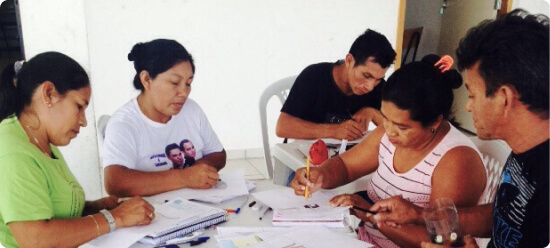

The work focuses mainly on school-aged children between 11 and 17 years old. The transition from elementary school to high school represents a moment of risk for black, quilombola and indigenous children, who are particularly vulnerable to external social and economic pressures as they transition from childhood to adolescence on their path to youth.
Targeted engagement by government officials at the state and local levels will create a replicable model for institutionalizing antiracist education into national policy and practice.

We have put together the answers to your main questions into categories. Just click on the subject you are looking for to filter the questions already answered.
Black, indigenous and quilombola girls and young women transform communities and school culture to be anti-racist and equitable. We understand, therefore, that the place of black, indigenous and quilombola girls is at school. Therefore, we will act intentionally to build a transformative educational system that promotes dignity at school.
Educators trained through initial and continuing training programs and supported with educational resources and guidance from education managers. Furthermore, they have the autonomy to incorporate anti-racist and non-sexist educational practices due to institutional recognition of the importance of these themes, with accessible and quality material support.
Subscribe to our newsletter and stay up to date with our activities and opportunities for joint actions.